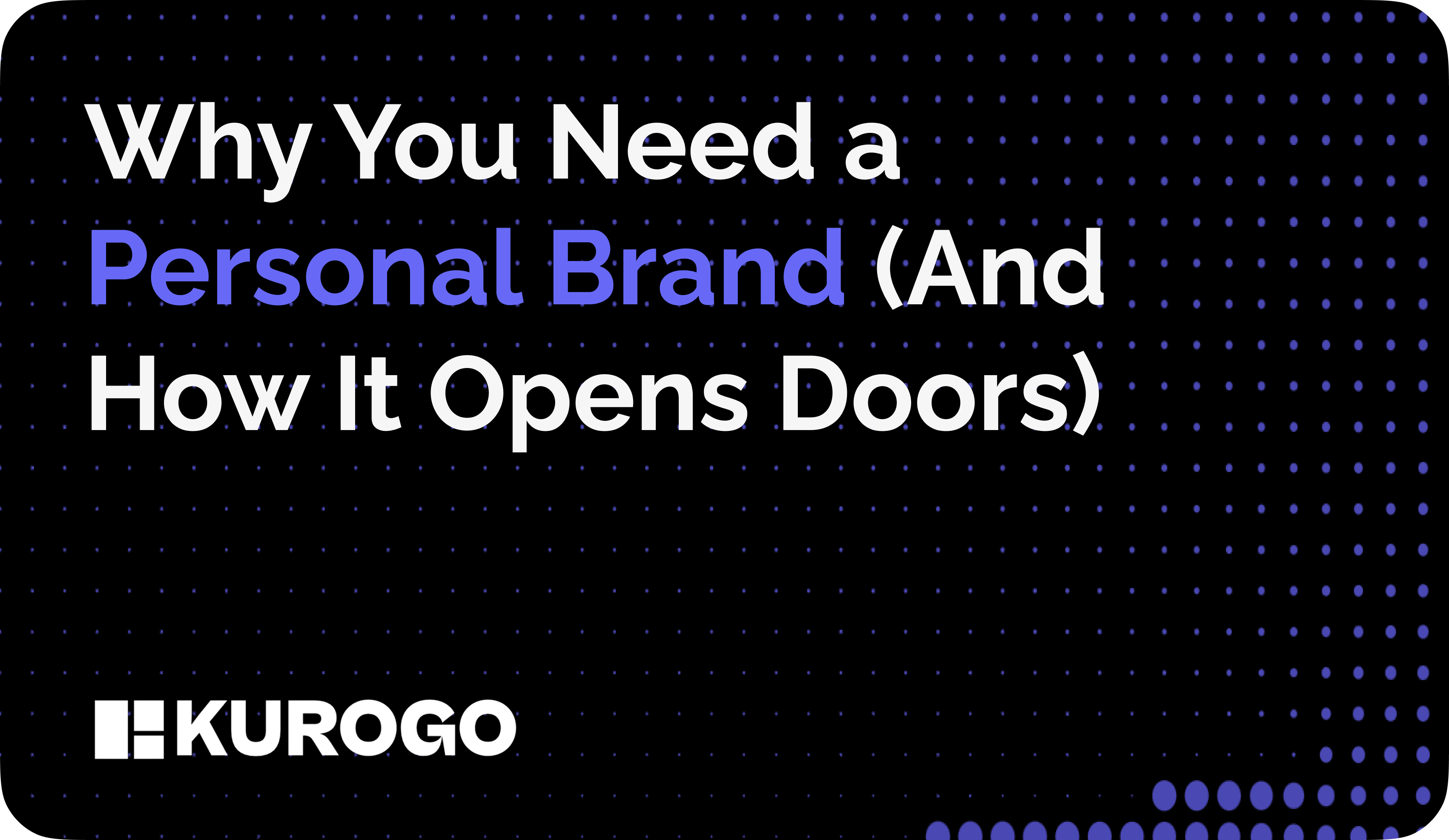Why Build a Personal Brand?
The simplest reason? More people knowing, liking, and trusting you will always be an advantage.
When you have an established personal brand, everything becomes easier: Securing clients and customers, attracting investment, hiring top talent, landing speaking engagements, creating new business opportunities, and much more.
A personal brand is not just about getting noticed; it’s about trust. People buy from, invest in, and collaborate with those they trust. And trust is built through consistent, credible presence.
How a Personal Brand Opens Doors
A well-built personal brand can unlock opportunities in multiple ways:
- Attracting Investment
Investors don’t just look at business plans; they invest in people. A founder with a strong personal brand signals credibility, vision, and leadership—key factors in securing funding. - Winning Clients
Trust is the biggest factor in purchasing decisions. If you’re known as an expert in your field, clients will seek you out instead of you having to chase them. - Hiring Top Talent
The best professionals want to work with leaders they admire. A strong personal brand helps attract ambitious, like-minded people to your team. - Landing Speaking Opportunities
Event organisers prioritise speakers with authority and a strong online presence. Thought leadership opens doors to key industry events. - Securing Consulting & Advisory Roles
If you position yourself as a go-to expert, businesses will seek you out for high-value consulting, board positions, and non-exec roles. - Becoming an Opportunity Magnet
Personal branding creates inbound opportunities—PR features, collaborations, partnerships, and media invitations. - Leaving a Lasting Impact
If you want to create real change, you need influence. Personal branding amplifies your voice, helping you shape industries, inspire others, and make a meaningful impact.

The Shift Toward People-Driven Brands
Consumer trust in corporations has declined. Today, people want to connect with humans, not faceless companies.
This shift is evident in CEOs becoming active on LinkedIn to humanise their brands, experts and consultants using social media to showcase their knowledge, and companies leveraging employee advocacy instead of relying solely on brand marketing.
If you’re not actively shaping your brand, you risk becoming invisible in your industry.




.png)